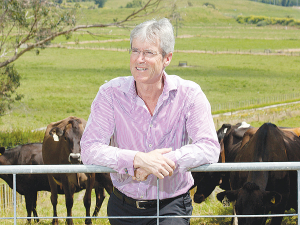Alliance Group returns to profit after two years with $93m turnaround
After two years, Alliance Group has returned to profit.
 After nearly nine years in the role, Ballance chief executive Mark Wynne will leave the co-op at the end of September.
After nearly nine years in the role, Ballance chief executive Mark Wynne will leave the co-op at the end of September.
Farm nutrient co-operative Ballance Agri Nutrients is on the hunt for a new chief executive.
After nearly nine years in the role, current chief executive Mark Wynne has announced that he will leave the co-op at the end of September.
Ballance chair Duncan Coull says supporting and maintaining Ballance's fantastic culture will be top of mind in the board's search for a new leader.
Coull says Wynne will remain in the role until a replacement is found.
"Mark will carry on doing what he does best, leading a great team to ensure we are providing New Zealand farmers and growers with the nutrients, advice, and the tools they need to continue to be the most productive and sustainable farmers and growers in the world," says Coull.
He says Wynne is held in high regard by the Ballance board.
"When Mark informed the board of his intention to resign, he told us what a privilege it has been for him to lead such an awesome group of people serving 17,000 farmer and grower families."
Wynne says it has been an amazing and incredibly rewarding experience to lead such a diverse business and dedicated team.
One of New Zealand’s longest-running pasture growth monitoring projects will continue, even as its long-time champion steps away after more than five decades of involvement.
The Insurance & Financial Services Ombudsmen Scheme (IFSO Scheme) is advising consumers to prepare for delays as insurers respond to a high volume of claims following this week's severe weather.
Additional reductions to costs for forest owners in the Emissions Trading Scheme Registry (ETS) have been announced by the Government.
Animal welfare is of paramount importance to New Zealand's dairy industry, with consumers increasingly interested in how food is produced, not just the quality of the final product.
Agriculture and Forestry Minister Todd McClay is encouraging farmers and growers to stay up to date with weather warnings and seek support should they need it.
The closure of SH2 Waioweka Gorge could result in significant delays and additional costs for freight customers around the Upper North Island, says Transporting New Zealand.